Don't wanna be here? Send us removal request.
Text
How IEC Registration Helps Businesses Expand Globally
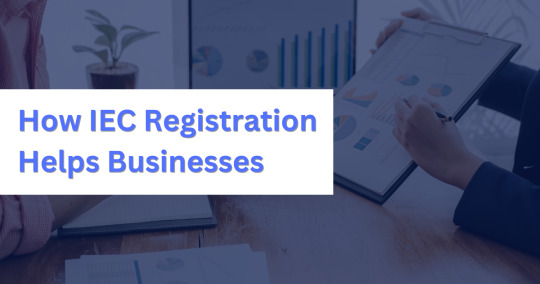
Introduction: The Role of IEC Registration in Global Trade
Expanding a business beyond domestic borders is an exciting yet complex endeavour. Companies looking to explore international markets must navigate trade regulations, customs procedures, and compliance requirements. One of the fundamental prerequisites for businesses in India to engage in international trade is obtaining an Import Export Code (IEC) Registration.
The IEC registration, issued by the Directorate General of Foreign Trade (DGFT), Ministry of Commerce & Industry, Government of India, acts as a key document for businesses to legally import or export goods and services. It not only facilitates customs clearance but also provides access to government incentives and trade agreements, making it an essential tool for businesses aiming for global expansion.
Understanding IEC Registration and Its Importance in International Trade
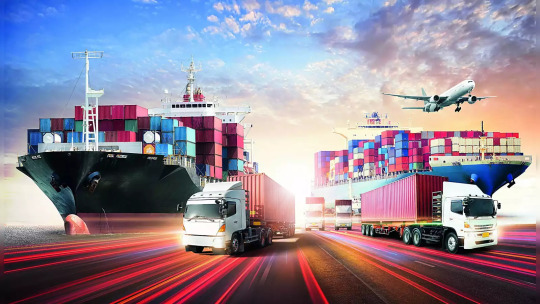
What is IEC Registration?
IEC registration is a 10-digit identification number assigned to Indian businesses involved in importing and exporting goods or services. Unlike other business licenses, it is a one-time registration that remains valid for the lifetime of the entity, requiring only periodic updates. Without an IEC, businesses cannot clear goods through customs, conduct foreign exchange transactions for trade, or avail themselves of export benefits.
Why is IEC Registration Essential for Global Expansion?
For businesses aiming to expand beyond Indian markets, IEC registration serves as a legal gateway to international trade. It streamlines import-export operations, ensures compliance with Foreign Trade Policy (FTP) guidelines, and builds credibility with global buyers and suppliers. Additionally, many international clients and banking institutions require proof of IEC registration before engaging in trade partnerships or processing cross-border transactions.
Key Benefits of IEC Registration for Businesses Expanding Globally

Legal Authorization to Conduct Import and Export Activities
One of the primary benefits of IEC registration is that it grants businesses legal authority to import or export goods and services. Without it, companies face restrictions on trade and may be unable to process shipments through customs.
Access to International Markets and New Revenue Opportunities
With globalization, businesses are no longer confined to local markets. IEC registration allows companies to explore new trade opportunities, expand their customer base, and increase revenue streams by reaching international clients and suppliers.
Simplifies Customs Clearance and Reduces Trade Barriers
Having an IEC number makes customs documentation more efficient and less prone to delays. The registration is linked to customs electronic data interchange (EDI), enabling businesses to process shipments smoothly without unnecessary bureaucratic hurdles.
Eligibility for Government Export Incentives and Schemes
Registered exporters can take advantage of various government schemes aimed at promoting international trade, such as:
Merchandise Exports from India Scheme (MEIS): Offers duty credit incentives for exporting specific products.
Service Exports from India Scheme (SEIS): Provides financial benefits to service providers exporting to foreign clients.
Duty Drawback Scheme: Allows exporters to receive refunds on customs duties paid for imported goods used in manufacturing export items.
Enhances Global Business Credibility and Trust
Having an IEC registration increases credibility among international clients and suppliers. Many foreign businesses require proof of IEC registration before entering trade agreements, as it signifies that the business is legitimate and compliant with Indian trade laws.
Step-by-Step Process to Obtain IEC Registration for Global Expansion
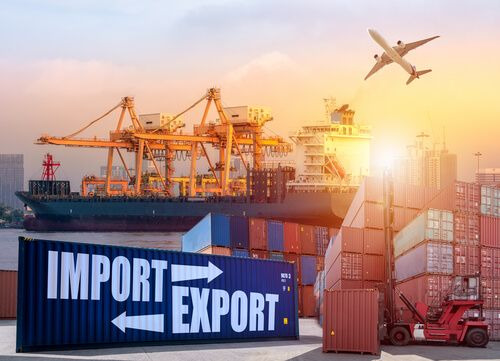
Step 1: Determine Business Eligibility for IEC Registration
Businesses involved in import or export activities—including individuals, proprietorships, partnerships, and corporate entities—must obtain an Import Export Code (IEC) Registration. However, certain entities, such as government agencies, may be exempt under specific conditions.
Step 2: Gather Required Documents for IEC Application
To apply for IEC registration, businesses must provide the following:
PAN Card of the business or applicant
Business registration documents (Company Incorporation Certificate, GST certificate, etc.)
Bank account details and a canceled cheque
Address proof (Aadhaar, Passport, or Voter ID for individuals; company registration certificate for firms)
Digital Signature Certificate (DSC) for corporate applicants
Step 3: Submit Application Online on the DGFT Portal
Businesses need to apply through the DGFT portal and fill out Form ANF-2A.
The application must include all required details and supporting documents.
A government fee must be paid to process the registration.
Step 4: DGFT Verification and IEC Code Issuance
Once submitted, the DGFT verifies the application and documents.
If everything is in order, the IEC code is generated and issued electronically within 1-2 working days.
How IEC Registration Helps Businesses Secure Global Trade Deals
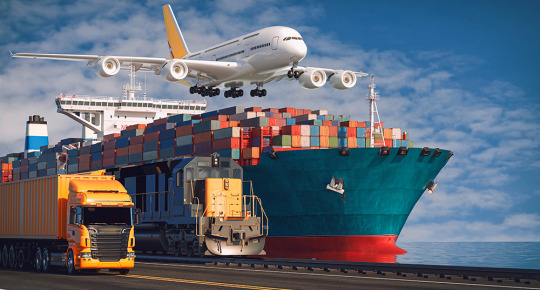
Facilitates Entry into Global Trade Markets
IEC registration allows businesses to legally engage in cross-border transactions and access new international markets. It also helps businesses comply with foreign trade regulations and import-export taxation norms.
Enables Foreign Currency Transactions and Trade Financing
Banks and financial institutions require IEC registration for processing foreign currency payments related to international trade. It is also necessary for securing trade finance, letters of credit, and export credit insurance.
Builds Business Trust for International Clients
Many global companies prefer working with IEC-registered Indian firms as it ensures regulatory compliance. Having an IEC code enhances business credibility and makes it easier to negotiate trade agreements with foreign clients.
Compliance and Renewal of IEC Registration for Long-Term Global Success
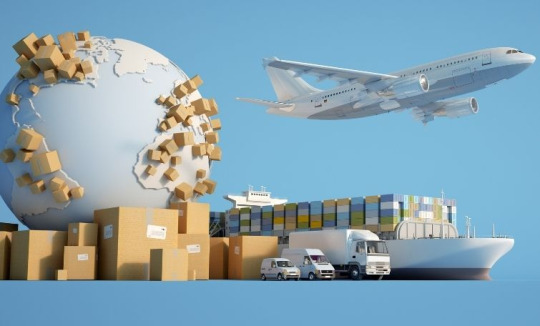
Mandatory Annual Update Requirement
As per recent DGFT regulations, IEC holders must update their registration details annually. Failure to comply may lead to deactivation of the IEC code, affecting global trade operations.
Adhering to Foreign Trade Policy (FTP) Guidelines
Businesses must stay compliant with international trade regulations and India's Foreign Trade Policy (FTP). This includes maintaining accurate documentation and following customs requirements.
Avoiding Trade Restrictions and Penalties
IEC holders must avoid violations such as:
Misdeclaration of goods
Exporting restricted items
Under-invoicing in international trade transactions Non-compliance may lead to penalties, suspension, or cancellation of IEC registration.
Overcoming Challenges in Global Trade with IEC Registration
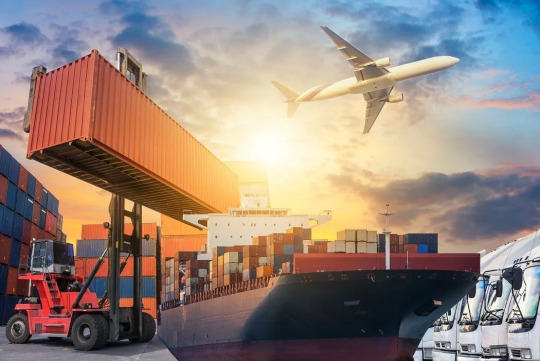
Managing International Trade Regulations and Compliance
Navigating global trade regulations can be complex, but IEC registration ensures businesses meet customs, documentation, and compliance requirements for seamless global trade.
Reducing Operational and Financial Risks in Global Expansion
IEC helps businesses avoid unnecessary delays, trade restrictions, and financial losses by ensuring proper customs clearance and compliance with international trade laws.
Competing Effectively in the Global Market
IEC registration provides a competitive edge by allowing businesses to align with global trade practices, enter new markets, and strengthen their position in international commerce.
Conclusion: Why IEC Registration is a Game-Changer for Global Business Expansion
Import Export Code (IEC) Registration is more than just a legal requirement—it is a crucial tool for businesses looking to expand internationally. It simplifies customs clearance, facilitates foreign trade transactions, and opens doors to new revenue opportunities.
For businesses planning to scale globally, IEC registration ensures regulatory compliance, enhances credibility, and enables participation in government export promotion schemes. Whether you are an aspiring exporter or an established importer, obtaining an IEC is the first step toward global success.
#ExportImport#InternationalTrade#GlobalBusiness#ExportGrowth#ImportExportLicense#TradeCompliance#BusinessExpansion#GlobalReach#InternationalBusiness#GlobalOpportunities#BusinessGrowthTips#Specific to Benefits:#GlobalMarketAccess#TradeFacilitation#InternationalSales#ExportBenefits#ImportBenefits#IndiaExports#USExports)#TextileExports#MadeIn[YourCountry]#Marketing & Informative:#BusinessTips#Entrepreneurship#BusinessAdvice
0 notes
Text
As AI technology advances, ethical considerations have become more important than ever. This article explores the balance between pushing innovation in AI development and maintaining responsibility toward transparency, fairness, and accountability. Learn about the key ethical challenges in AI and how developers can create responsible AI systems that benefit society while minimizing risks.
0 notes
Text
Revolutionizing Pharma: The Role of AI & ML in Scaling Operations
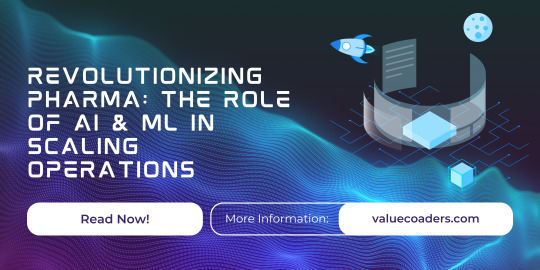
Introduction:
The pharmaceutical industry stands at the forefront of innovation, constantly striving to develop new drugs, improve patient outcomes, and navigate complex regulatory landscapes. In recent years, the advent of artificial intelligence (AI) and machine learning (ML) technologies has sparked a revolution in how the industry operates.
This article explores the transformative impact of AI & ML on the pharmaceutical sector, addressing its ability to overcome challenges and drive efficiency.
Current Challenges in the Pharma Industry:
In the dynamic landscape of the pharmaceutical industry, several challenges persist, impeding progress and innovation. These challenges include:
Stringent Regulatory Requirements: The pharmaceutical sector operates within a heavily regulated environment, with rigorous standards imposed by regulatory bodies such as the FDA (Food and Drug Administration) in the United States and the EMA (European Medicines Agency) in Europe. Compliance with complex regulations adds significant time and cost to drug development processes.
High Research and Development Costs: Developing a new drug from discovery to market approval is an expensive and time-consuming endeavour. The costs associated with research, preclinical testing, clinical trials, and regulatory approvals can amount to billions of dollars per drug. High costs often deter investment in research for diseases with smaller patient populations or uncertain market prospects.
Long Drug Development Timelines: The journey from drug discovery to market availability typically spans over a decade. Lengthy timelines result from extensive preclinical and clinical testing phases, as well as regulatory reviews. Delays in drug development can prolong patient suffering and increase costs for pharmaceutical companies.
Increasing Demand for Personalized Medicine: Advances in genomics and molecular biology have fueled the demand for personalized medicine, which tailors treatments to individual patients based on their genetic makeup, lifestyle, and environment. Developing personalized therapies requires a deeper understanding of disease mechanisms, biomarkers, and patient variability, presenting both scientific and logistical challenges.
Drug Pricing Pressures: Pharmaceutical companies face mounting pressure to justify the prices of their drugs amid concerns about healthcare affordability and access. Pricing pressures stem from government regulations, payer negotiations, and public scrutiny, leading to debates over drug pricing transparency and value-based pricing models.
Intellectual Property Rights and Patent Expirations: Patents play a crucial role in protecting pharmaceutical innovations and providing market exclusivity to drug manufacturers. However, patent expirations expose branded drugs to competition from generic versions, resulting in revenue loss for originator companies and driving the need for continuous innovation to maintain market share.
Complex Supply Chain Management: The pharmaceutical supply chain is extensive and global, involving multiple stakeholders, including manufacturers, distributors, pharmacies, and healthcare providers. Ensuring product quality, safety, and timely delivery while navigating regulatory requirements and logistical challenges poses significant complexities for supply chain management.
Role of AI & ML in Addressing Pharma Industry Challenges:
Artificial intelligence (AI) and machine learning (ML) technologies are playing a pivotal role in transforming the pharmaceutical industry by addressing its inherent challenges. Here's how AI & ML are making a significant impact:
Drug Discovery and Development: AI & ML algorithms analyze vast amounts of biological data to accelerate the drug discovery process. By identifying patterns in genomic, proteomic, and metabolomic data, these technologies help predict drug-target interactions, identify potential drug candidates, and optimize lead compounds for efficacy and safety. Additionally, AI-driven virtual screening techniques prioritize molecules with the highest likelihood of success, reducing the time and cost associated with traditional methods.
Personalized Medicine: AI & ML enable the development of personalized treatment approaches by analyzing patient data to identify genetic biomarkers, disease subtypes, and treatment responses. These technologies empower healthcare providers to tailor therapies to individual patient's characteristics, improving treatment outcomes and minimizing adverse effects. AI-driven predictive modelling also aids in predicting disease progression, enabling early intervention and proactive management of chronic conditions.
Clinical Trial Optimization: AI & ML algorithms enhance clinical trial design and execution by analyzing patient data to identify suitable participants, optimize trial protocols, and predict patient responses to interventions. By leveraging real-world evidence and patient-generated data, these technologies enable adaptive trial designs that improve patient recruitment, retention, and overall trial efficiency. AI-driven predictive analytics also help identify potential safety issues and adverse events early in the drug development process, minimizing risks and ensuring patient safety.
Regulatory Compliance: AI & ML automate regulatory compliance processes by streamlining data management, documentation, and reporting requirements. These technologies enable pharmaceutical companies to ensure compliance with regulatory standards, such as Good Clinical Practice (GCP) and Good Manufacturing Practice (GMP), while reducing the burden of manual paperwork and administrative tasks. AI-powered systems also enhance pharmacovigilance efforts by detecting adverse events and safety signals in real time, enabling timely interventions and risk mitigation strategies.
Drug Repurposing and Combination Therapies: AI & ML algorithms analyze large-scale datasets to identify novel uses for existing drugs (drug repurposing) and optimize combination therapies for complex diseases. By integrating diverse data sources, including electronic health records, biomedical literature, and molecular databases, these technologies uncover hidden connections between drugs, diseases, and biological pathways, facilitating the discovery of new treatment options and improving patient outcomes.
Benefits and Future Outlook:
The integration of artificial intelligence (AI) and machine learning (ML) technologies into the pharmaceutical industry brings forth a multitude of benefits and holds promising prospects for the future:
Improved Efficiency and Cost-Effectiveness: AI & ML algorithms streamline various processes across the pharmaceutical value chain, from drug discovery to clinical trials and regulatory compliance. By automating repetitive tasks, analyzing large datasets, and optimizing workflows, these technologies enhance operational efficiency and reduce costs associated with research and development.
Enhanced Decision-Making and Patient Outcomes: AI & ML enable data-driven decision-making by providing actionable insights into patient populations, treatment responses, and disease progression. Healthcare providers can leverage predictive analytics to tailor treatment plans, optimize drug dosages, and identify at-risk patients, ultimately improving clinical outcomes and patient satisfaction.
Accelerated Drug Discovery and Development: AI & ML algorithms expedite the identification of potential drug candidates, optimize lead compounds, and predict drug-target interactions with unprecedented accuracy. By reducing the time and cost required for preclinical and clinical testing, these technologies accelerate the drug development process and facilitate the delivery of innovative therapies to market.
Facilitation of Personalized Medicine: AI & ML empower personalized medicine approaches by analyzing individual patient data to tailor treatments based on genetic, environmental, and lifestyle factors. By stratifying patient populations, identifying biomarkers, and predicting treatment responses, these technologies enable precision medicine interventions that maximize efficacy and minimize adverse effects.
Enhanced Regulatory Compliance and Pharmacovigilance: AI & ML automate regulatory compliance processes by ensuring adherence to complex standards and guidelines, such as Good Clinical Practice (GCP) and Good Manufacturing Practice (GMP). By enhancing pharmacovigilance efforts, these technologies enable real-time monitoring of drug safety and efficacy, facilitating early detection of adverse events and timely interventions.
Promising Future Outlook: The future of AI & ML in the pharmaceutical industry holds immense potential for further innovation and breakthroughs. As these technologies continue to evolve, we can expect advancements in areas such as drug repurposing, combination therapies, and personalized drug design. Additionally, the integration of AI & ML with other emerging technologies, such as blockchain and virtual reality, will unlock new opportunities for collaboration and discovery.
Conclusion: -
The incorporation of artificial intelligence (AI) and machine learning (ML) into the pharmaceutical sector represents a paradigm shift, ushering in a new era of innovation, efficiency, and personalized medicine. By addressing the industry's longstanding challenges, AI & ML technologies are revolutionizing drug discovery, development, and patient care in unprecedented ways.
0 notes
Text
Drug License in India: Ensuring Quality and Safety in Pharmaceutical Industry
Introduction The pharmaceutical industry plays a crucial role in providing essential healthcare products to the population. However, to ensure the safety, efficacy, and quality of pharmaceutical products, stringent regulatory measures are in place, one of which is obtaining a drug license. In this article, we will delve into the intricacies of drug license regulations in India, outlining the…
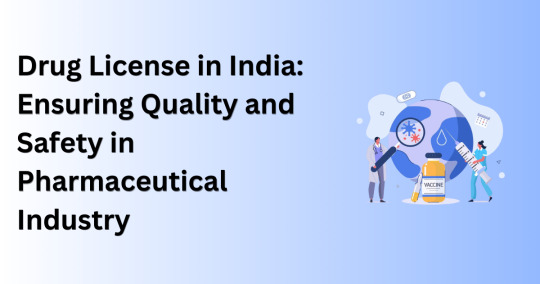
View On WordPress
0 notes
Text

Understanding The Indian Standards Institution (ISI) Certification Process
ISI certification serves as a cornerstone of India's quality assurance framework, ensuring that products meet prescribed standards of safety, reliability, and performance. By adhering to ISI standards and obtaining certification, manufacturers not only enhance their market competitiveness but also contribute to consumer welfare and sustainable economic development. As India continues its journey towards manufacturing excellence, the importance of ISI certification in fostering a culture of quality and reliability cannot be overstated.
1 note
·
View note
Text
How to Get BIS Certification in India
Introduction Bureau of Indian Standards (BIS) Certification is a mark of quality and safety assurance for products in India. It ensures that products meet specified standards set by BIS, enhancing consumer confidence and facilitating trade. In this article, we’ll delve into the process of obtaining BIS Certification in India, outlining the regulatory framework, documentation requirements,…
View On WordPress
1 note
·
View note
Text
CDSCO Registration And Its Various Types: Navigating India's Regulatory Landscape
Introduction The Central Drugs Standard Control Organization (CDSCO) serves as the regulatory authority overseeing the pharmaceutical and medical device sectors in India. Its role is pivotal in ensuring the safety, efficacy, and quality of drugs and medical devices available in the Indian market. In this article, we will delve into the various aspects of CDSCO registration, its types, and the…
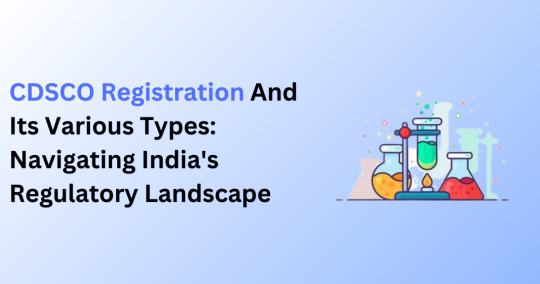
View On WordPress
0 notes
Text
Hallmark Registration for New Jewelry Designs in India
The hallmark serves as an underlying pledge of quality, authenticity, and legacy in the complicated realm of jewelry, where craftsmanship meets creativity. This essay delves into the intricacies of hallmark registration for new jewelry designs, revealing the profound significance of these tiny yet powerful symbols. We will not only investigate the artistry of hallmarks, but also deconstruct the intricate process of getting them, underlining their critical role in the integrity of the jewelry industry.
#Hallmark Registration#Get Hallmark Registration#Online Hallmark Registration#Hallmark Registration Certificate
0 notes
Text
Why is biodegradable plastic packaging important, and what does it mean?
Plastic has become a ubiquitous presence in contemporary society, bringing convenience and transforming various businesses. But the widespread usage of it has led to a serious issue: plastic pollution. Biodegradable plastic packaging has become apparent as a possible remedy as a result. As we move toward a cleaner, more sustainable future, this article examines the idea, importance, mechanics, applications, and promotion of biodegradable plastic packaging.
#biodegradable plastic packaging#biodegradable plastic packaging plant#Start biodegradable plastic packaging Plant
0 notes
Text
The Advantages Of BIS Certification For Importers, Exporters, And Manufacturers
Ensuring product quality and safety is a non-negotiable in the fast-paced world of manufacturing, exporting, and importing. A key tool in this endeavor is the Bureau of Indian Standards (BIS) Certification, which provides importers, exporters, and manufacturers with a number of advantages. This extensive article explores the true meaning of BIS Certification and how it promotes quality and safety throughout the supply chain.
0 notes
Text
Indian Hallmark Registration Schemes: A Comprehensive Overview
The centuries-old process of hallmarking precious metals such as gold, silver, and platinum attests to their authenticity and purity. It is extremely important in India, guaranteeing that customers who buy jewelry or other precious metal products get the quality and value they expect. This essay explores the realm of hallmarking, examining its significance, the regulatory framework overseen by the Bureau of Indian Standards (BIS), the different hallmark registration programs in India, the hallmarking procedure, the advantages it provides to customers, the difficulties it encounters, the latest advancements, and, in the end, the long-term effects it has on the nation's precious metals sector.
#Hallmark Registration Schemes#Hallmark Registration#Hallmark Registration in India#Hallmark Registration Online
0 notes
Text
Toys are beloved childhood companions that encourage imagination, creativity, and education. They have the ability to arouse a child's curiosity and provide endless happiness. But playing innocence also comes with a big responsibility to make sure these cherished toys stay safe. This article takes readers on a thorough investigation into the crucial field of BIS (Bureau of Indian Standards) certification for toys, emphasizing not only how important it is for protecting children's safety but also how it affects toy producers and customers.
0 notes
Text
India has experienced a remarkable surge in the use of unmanned aerial vehicles, or drones, in recent times. What was formerly thought to be a specialized technology used only for commercial and military purposes is now in the hands of enthusiasts, hobbyists, and a wide range of enterprises. In India, drones are becoming commonplace. They may be used for a wide range of purposes, from shooting amazing aerial photos to supporting last-mile delivery, agriculture, and search and rescue missions.
0 notes
Text
How Do I Start a Compostable Plastic Packaging Plant?
The need for sustainable solutions is growing as the world struggles with the growing issue of plastic pollution. Compostable plastic packaging is one of these substitutes that has drawn a lot of interest due to its potential to lessen the environmental impact of conventional plastics. This article presents a thorough analysis of biodegradable plastic packaging, covering everything from its different varieties to its advantages and contributions to a more sustainable future.
#Compostable Plastic Packaging Plant#Compostable Plastic Packaging Plant in india#Get Compostable Plastic Packaging Plant
0 notes
Text
Safety and legal compliance are critical in the complex worlds of healthcare and pharmaceuticals. Drug and medical device compliance with regulations is a complicated process. The Assistant Drug Controller (ADC) No Objection Certificate (NOC) is a crucial component of this procedure. This essay explores the pharmaceutical and healthcare industries' vital demand for ADC NOCs.
#Assistant Drug Controller (ADC) No Objection Certificate (NOC).#Assistant Drug Controller NOC#Assistant Drug Controller NOC in india
0 notes
Text
The medical field itself is one that carries a great deal of responsibility. This obligation extends to everyone who works in the medical industry, including hospitals, pharmacies, ambulance services, and other businesses. It is not just doctors who have this obligation. The guidelines are designed to deal with the makers of medical equipment since it is crucial to control these businesses with the utmost care.
#Class C and Class D Medical Device Manufacturing in India#Class C and Class D#Get Class C and Class D Medical Device Manufacturing in India
0 notes
Text
The Different Types of Hallmark Registration Schemes in India
Introduction Hallmarking, a centuries-old practice, stands as a testament to the purity and authenticity of precious metals like gold, silver, and platinum. In India, it carries profound significance, ensuring that consumers receive the value and quality they expect when purchasing jewellery or precious metal items. This article delves into the world of hallmarking, exploring its importance, the…

View On WordPress
0 notes